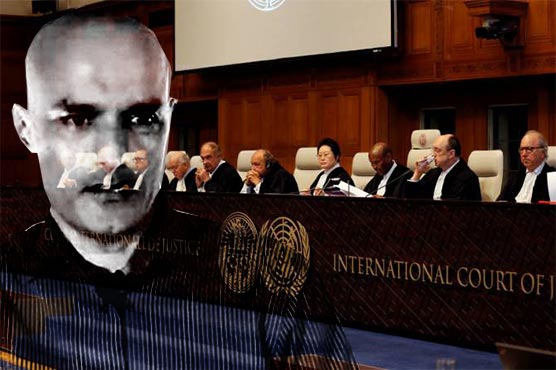KATHMANDU: In a major diplomatic and legal victory for India in the Kulbhushan Jadhav case, the International Court of Justice (ICJ) on Wednesday (July 17) directed Pakistan to review his conviction and, until then, put his death sentence on hold.
The court also asked Islamabad to allow New Delhi consular access at the earliest. In a 15-1 order, the ICJ held that Jadhav’s execution will remain on hold until Islamabad “effectively reviews and reconsiders” his conviction.
Kulbhushan Sudhir Jadhav, born on 16 April 1970 is an Indian national who had been “kidnapped last year from Iran and his subsequent presence in Pakistan has never been explained credibly”. On 10 April 2017, Jadhav was sentenced to death by a Field General Court Martial in Pakistan. On 18 May 2017, the International Court of Justice stayed the execution pending the final judgment on the case.
On 17 July 2019, the ICJ ordered Pakistan to suspend the execution until the effectual review of the conviction and access to the consulate. The Hague-based court affirmed Jadhav’s right to consular access and called on Pakistan to review and reconsider his conviction and sentence. The ICJ ruled in favor of India in the case of former Navy officer Kulbhushan Jadhav who had been sentenced to death by a Pakistani Military court on charges of “espionage and terrorism”.
The Government of India has emphatically proved the point that Kulbhushan Jadav was indeed abducted by Pakistan’s forces from the Iran-Pakistan border to fabricate India into wrong charges of terrorism to bring parallel to Pakistan being a sponsor of terrorism. India instituted proceedings in the ICJ on May 8 May 2017 to egregious violations by Pakistan of the Vienna Convention on Consular Relations, 1963 in the matter of arrest detention and trial of an Indian national Shri Kulbhushan Sudhir Jadhav.
India’s arguments were fully appreciated by the ICJ bench hearing the case. The following were the main gist of the arguments, amongst others, placed by India before the court:
- Pakistan is in breach of Article 36(1) (b) of the Vienna Convention which obliged Pakistan to inform India of the arrest of an Indian national ”without delay”.
- Pakistan is in breach of the Vienna Convention of taking to inform Jadhav of his rights under the convention.
- Pakistan is in breach of the convention in declining access to Jadhav by consular officers of India. Article 36 of the Vienna Convention casts an unconditional obligation upon Pakistan to grant consular access to Jadhav.
- The entire trial and sentence by Pakistan’s military court, which was based on ”confession taken under custody”, without adequate legal representation were farcical. It was in brazen defiance of the rights and protections provided under the Vienna Convention and the International Law, including ICCPR (International Covenant on Civil and Political Rights).
- The trial of foreign national civilians by Military Courts is per se violative of the ICCPR.
India with the strength of facts and the evidences have strongly pleaded that Pakistan is using the Jadhav case to blame India for its own problems in Baluchistan. Pakistan has used proxy groups such as Jasih-al-Adl against Iran. Iranian officials have spoken of Pakistan’s sponsorship of terrorist activities along the Iran-Pakistan border. Recently, the US State Department designated Jaish-al-Adl as a front of Jundullah, which is a Specifically Designated Global Terrorist.









Comment